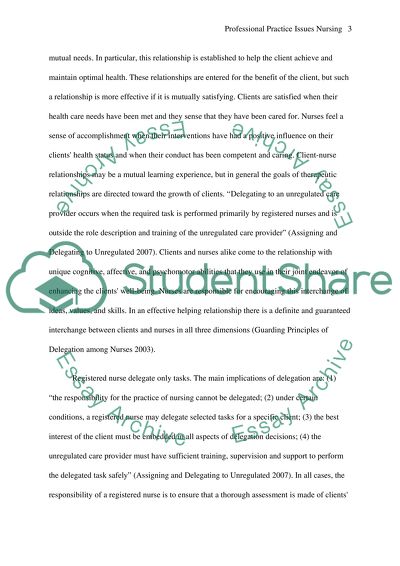Cite this document
(“Professional Practice Issues Nursing Essay Example | Topics and Well Written Essays - 1250 words”, n.d.)
Professional Practice Issues Nursing Essay Example | Topics and Well Written Essays - 1250 words. Retrieved from https://studentshare.org/health-sciences-medicine/1518396-professional-practice-issues-nursing
Professional Practice Issues Nursing Essay Example | Topics and Well Written Essays - 1250 words. Retrieved from https://studentshare.org/health-sciences-medicine/1518396-professional-practice-issues-nursing
(Professional Practice Issues Nursing Essay Example | Topics and Well Written Essays - 1250 Words)
Professional Practice Issues Nursing Essay Example | Topics and Well Written Essays - 1250 Words. https://studentshare.org/health-sciences-medicine/1518396-professional-practice-issues-nursing.
Professional Practice Issues Nursing Essay Example | Topics and Well Written Essays - 1250 Words. https://studentshare.org/health-sciences-medicine/1518396-professional-practice-issues-nursing.
“Professional Practice Issues Nursing Essay Example | Topics and Well Written Essays - 1250 Words”, n.d. https://studentshare.org/health-sciences-medicine/1518396-professional-practice-issues-nursing.


